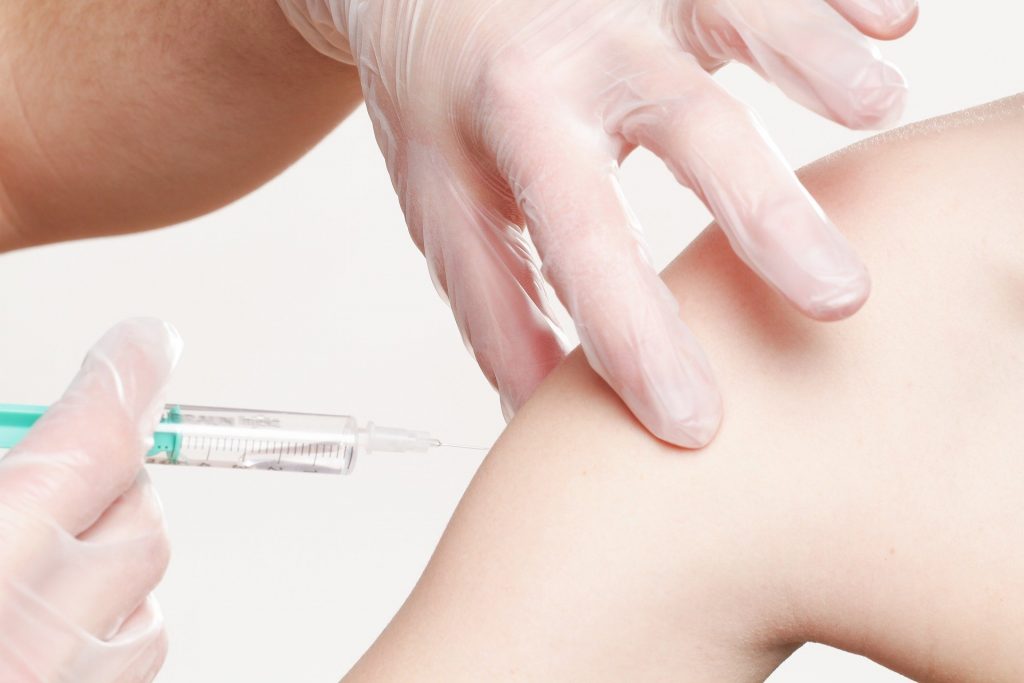The Abbvie-Allergan Deal: A Matter of Distrust?
 5 years ago
By Bryan
5 years ago
By Bryan
Compared to the merger announcement itself, the industry reaction to the $63 billion Abbvie buyout of Allergan, announced this June, was no big surprise. Abbvie, seeking to replace its now-ageing blockbuster drug Humira, was the only suitor for the Botox and Restasis seller, paying a premium on a company that has recently suffered in the stock market. Rival companies as well as consumer groups have been critical of the deal, but do these complaints stem from real worries over the merger, or legacies that still haunt the companies today?
Across the board, negative actions both companies have undertaken in the past are being used as a reason to block the deal. The idea gathered from criticism of the merger is not so much fear of future actions as simple distrust of the companies involved: a reactionary response to the behaviours of the players involved.
Abbvie’s initial offer on Allergan was a strong one, pushed higher after Allergan shares rose amid recent speculation of a split. The pharma giant offered 0.866 of its own shares as well as $120.30 in cash for every Allergan share, a 45% premium on Allergan’s shares that week. Allergan shares had been falling in recent months, as investors looked for a way out for the company and pressure mounted for a split that could have boosted the organisation’s ailing fortunes.
Should the deal close, Abbvie will become the fourth largest pharmaceutical company in the world, leading in a number of areas. Abbvie CEO Richard Gonzalez, who said he had already identified $2 billion in cost cuts, is set to run the merged entity until 2023. Allergan’s current CEO and chairman, Brent Saunders, will take a board seat in the merged entity alongside another representative.
But following criticism from the wider industry, last week a number of advocacy groups and unions wrote to the U.S. Federal Trade Commission (FTC) to suggest increased scrutiny over the purchase, citing the strength of the new entity in a market heavily criticised for rising drug prices and big pharma consolidation.
In particular, the organisations warned that a merger could see insurers or pharmacy benefit managers (PBMs) receiving more incentives such as volume-based rebates, an oft-cited reason for the steady hike in commercial drug prices, and that exclusionary conditions PBMs would have to sign could “hamper the ability of rivals to compete”.
There’s a level of undeniability about what the letter suggests – consolidation is a major worry for many within the pharma industry, and naturally a merger creating an entity so large must be scrutinised closely for anti-competitive worries. But on closer examination, doubts arise as to whether the Abbvie-Allergan deal really warrants such consternation on the part of so many, or whether another, subtler reason is behind the aggression shown towards the merger.
It’s certainly true that while there is a scarcity of large, viable acquisition targets currently in the market, Abbvie’s move on Allergan surprised many due to the latter’s recent performance. Leading analysts have suggested that Allergan was not an “expensive name” on valuation, and in 2018 generated fewer total sales than Humira alone did for Abbvie.
Financial news and analysis site Barron’s suggested the Allergan purchase was “not the right remedy”, citing the looming end of patent protection for both Abbvie’s Humira and Allergan’s Botox as a reason for doubting the effectiveness of the merger. Since 2014, shareholders in companies that have spent more than $10 billion on a pharma acquisition have lost around 11% share value. Though Abbvie has two potential blockbusters, Skyrizi and Imbruvica, in the works, the merger will still leave the entity around $18 billion in debt by the end of 2021.
Though just as many analysts have suggested the merger will reap a profit for Abbvie, citing diversification and particularly a move towards the aesthetics market, the conflicted messages across the sector point to one thing: this mega-merger isn’t quite the titan the companies’ critics claim it to be. While there are certainly risks to the sector to allow such a giant to emerge unscathed from a regulatory review, there is room for doubt over whether healthy competition is the only reason so many critics have emerged.
In their recent letter to the FTC, the unions and public interest groups cited the companies’ past actions as a major reason for the need to block the deal. They criticised Allergan for its recent attempts to transfer Restasis patents to the St. Regis Mohawk Native American tribe to avoid patent challenges and delay generics entering the market. Abbvie for its part was cited over past anti-competitive practices and price hikes involving Humira.
In their letter the organisations noted that the two companies have: “engaged in a wide variety of anti-competitive conduct to stifle competition including restrictive contracting practices and intellectual property abuse.” They added that they hoped the investigation would “be part of a reinvigorated broader look at pharmaceutical drug mergers.”
Other analysts, such as Katy Milani at the Roosevelt Institute, focused on the nature of monopoly itself, as opposed to the real-world effects of this particular merger, as well as the effect of pharma consolidation generally on patients.
Given what has been made of the Abbvie-Allergan deal by experts, claims of a pharma titan that would quash competition seem ill-founded: with at least two of their mega-blockbusters open to generic equivalency by 2023, the deal will create a more diverse, disparate company than either of its entities were beforehand. Differences in culture and a lack of two market-cornering drugs could well neuter a potentially fearsome beast.
But the fact that the market has reacted so strongly to the merger still indicates a hugely important lesson for both companies, and every other pharma giant: the sins of the past have greater implications than merely a temporary drop in stock prices. With the compounding of events seen by the public in a negative light, big actions such as the Abbvie-Allergan merger will become increasingly hard as past actions are thrown up as blockades and regulators face ever-increasing pressure to scrutinise the minutiae of deals. The Abbvie-Allergan deal may well go ahead, but without the criticisms being levelled at their past actions, they would have found the merger a great deal easier.
Joshua Neil, Editor
Proventa International

Future Trends in Clinical Trials and Pharmacovigilance for the Next 5 Years
The field of clinical trials and pharmacovigilance (PV) is constantly evolving, driven by advances in medical science, technology, and regulatory requirements. As we look ahead to the next five years, it is evident that significant changes and innovations will shape...
1 year agoFuture Trends in Clinical Trials and Pharmacovigilance for the Next 5 Years
The field of clinical trials and pharmacovigilance (PV) is constantly evolving, driven by advances in medical science, technology, and regulatory requirements. As we look ahead to the next five years, it is evident that significant changes and innovations will shape...
1 year ago
DeepMind’s AI Predicts Structures for More Than 350,000 Proteins
In 2003, researchers sequenced approximately 92% of the human genome, a huge achievement and very recently researchers have completed the entire process. Now, the latest innovation in AI technology has predicted the structure of nearly the entire human proteome. The...
3 years agoDeepMind’s AI Predicts Structures for More Than 350,000 Proteins
In 2003, researchers sequenced approximately 92% of the human genome, a huge achievement and very recently researchers have completed the entire process. Now, the latest innovation in AI technology has predicted the structure of nearly the entire human proteome. The...
3 years ago
COVID-19 Booster Controversy: Disputes Across the Pharma Industry
Despite almost two thirds of the adult population in the UK having been vaccinated, cases are on the rise, which appear to be associated with the highly-transmissible delta variant of COVID-19. According to The European Centre for Disease Prevention and Control,...
3 years agoCOVID-19 Booster Controversy: Disputes Across the Pharma Industry
Despite almost two thirds of the adult population in the UK having been vaccinated, cases are on the rise, which appear to be associated with the highly-transmissible delta variant of COVID-19. According to The European Centre for Disease Prevention and Control,...
3 years ago